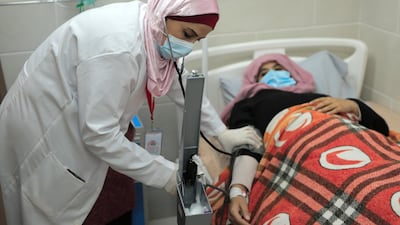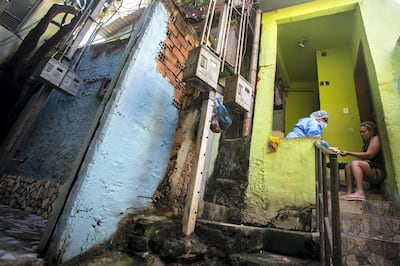Income inequality is being exacerbated by the coronavirus pandemic as billionaires bounce back and the world's poorest struggle disproportionately, Oxfam has found.
The charity said the planet's richest people recouped their Covid-19 losses inside nine months but it could take more than a decade for the world's poorest to recover.
The ten wealthiest men have seen their combined wealth increase by $540 billion (£400 billion) during the pandemic, Oxfam's report, The Inequality Virus, found.
That is enough to both pay for a Covid-19 vaccine for everyone on the planet and reverse the rise in poverty caused by the pandemic, Oxfam said.
Women are being hardest hit and the pandemic is widening long-standing economic, racial and gender divides, the report revealed, as it was published on the opening day of the World Economic Forum's Davos Agenda.
"During the pandemic 10 billionaires made half a trillion dollars in that period which would be enough to prevent anyone from across the world from being pushed into poverty and would be enough to pay for a vaccine for everyone," said Gabriela Bucher, executive director of Oxfam International.
"At the other end of the spectrum we know millions of people have lost jobs, livelihoods, a roof over their heads, so the contrast is enormous and we know that this year inequality is set to rise in almost every country in the world and [to be] the greatest rise since records began."
The report supports an analysis by the World Bank, which has warned that the economic crisis is sending a new generation into poverty and debt turmoil. The International Monetary Fund has warned that developing nations may be set back by a decade.
Oxfam is urging governments to do more to address inequality, including making tax policies more equitable and cancelling developing countries' debts.
Advances in women's equality that have taken decades to achieve are now at risk of being wiped out, Oxfam added.
It reported an extra 112 million women are at risk of losing their jobs, many of them low paid and in health or social care.
For its part, the WEF has urged governments to make society more resilient, inclusive and sustainable.



